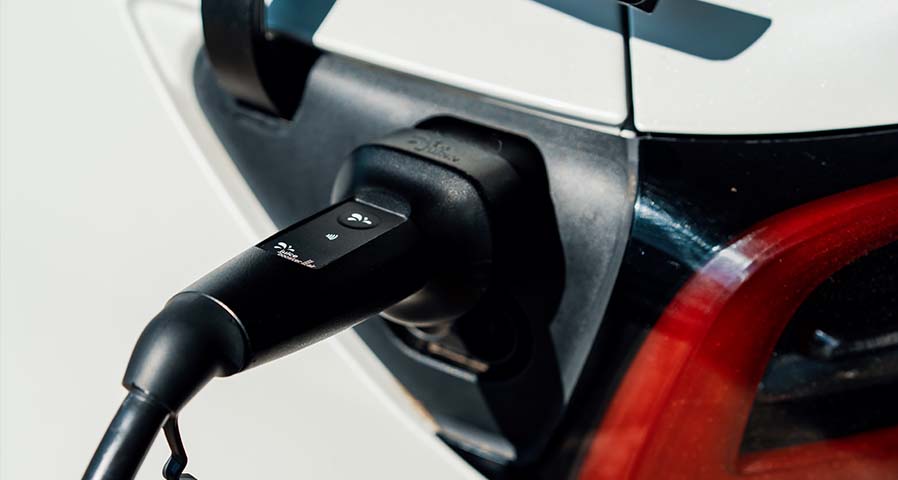By 2050, electric vehicles (EVs) are predicted to account for over one-third of vehicles on the road. To meet the upcoming demand, many colleges and universities are install EV chargers on campus. Also known as electric vehicle supply equipment (ESVE), the chargers will be available for the facility, staff, students, and the public.
EVs on Campus – Why It’s the Ideal Location for EV Chargers
Campuses are not only for higher learning, they are also community centers. Festivals, meetings, concerts, and plays are only a few examples of events commonly held on school campuses. Since these events bring in community members, campuses are an ideal location to offer EV charging.
An example is the University of Buffalo (UB). After realizing the campus’s primary source of carbon emissions is from students, faculty, and staff’s daily commutes, UB decided to add 33 charging stations in 2021. With six months of installing EV chargers on campus, the percentage of EV drivers increased by 206%.
To help offset costs, and encourage the adoption of zero-emissions fleets, state, utility, and local programs are providing financial incentives. The incentives can help offset costs associated with charging station purchasing and installation costs.
California is an example of a state offering robust incentive programs under the California Environmental Protection Agency. Some of the programs include the Hybrid and Zero-Emission Truck and Bus Voucher Incentive Project (HVIP), offering grants from $35,000 to $85,000 for battery-electric shuttle buses, and up to $120,000 for battery-electric Class 8 buses. Investor-owned utilities are working to help pay for EV chargers and installation. Additional state programs are funding EVSE that include the Volkswagen Settlement.
If your university is considering installing EV chargers, or adding additional EV chargers to your campus, Apogee Charging Solutions is here to help. We offer a turn-key education sector EV charger solution including, product selection and purchasing, supporting equipment, advanced OS, installation, rebate and incentive recovery services, as well as O&M and management services.
Reducing the Costs Associated with EVs on Campus
While financial incentives are offsetting purchasing and installation costs associated with light-duty EV fleets. The reduction in fuel and maintenance costs is helping EVs pay for themselves. A police chief in Indiana is replacing his fleet of Dodge Chargers with Tesla Model 3s. Expecting to save around $20,000 over the lifetime of the vehicles, the police chief is seeing a return on the investment in as little as 19 months.
Installing EV chargers on campus often means coordinating with local utility companies. Installing the infrastructure for a dozen EV chargers could place a heavy load on the power grid. It may require a significant investment in the campus’s utility infrastructure.
Working with the utility company may make it possible for campuses to take advantage of EV-specific incentives. It can include using utility EV programs to help offset infrastructure and installation costs.
Utility costs vary by the energy provider and geography. Any plan to install EV chargers on campus should consider ways to mitigate electricity costs. It can include using charge management software, generating, and storing energy on campus, and taking advantage of EV incentives. The University of Buffalo is one example. The campus is using a battery storage program to control onsite load and optimize energy consumption.
Partnering with Apogee Charging Solutions
Partnering with Apogee Charging Solutions can help campuses reduce energy usage and costs, along with responding appropriately to peak demand hours.
As the demand for cleaner energy continues to grow, along with the need for convenient charging locations, finding an EV charging partner is making more sense. The partnership can also help ensure the installation project runs smoothly and on budget.
Before entering into an EV charging partnership, it’s a good idea to consider the following.
- Develop a comprehensive strategy for EV charger installation and fleet electrification. Skipping this initial step can make expanding your charging infrastructure more difficult and increase expenses.
- Create a plan that accounts for adding more EV chargers on campus in the future.
- Communicate with your utility provider at the beginning planning stages and throughout the project.
- Research and apply for all applicable financial incentives. Apogee Charging Solutions will help you find the ones that apply to your project.
- Consider charging power levels for dwell times to minimize electrical costs.
- Have a plan on how to recoup charging costs from the campus’s electric fleet and consumers.
Apogee Charging Solutions can help your campus with every step of the planning and implementation stages. Contact us today to learn more.
To speak with an Apogee Charging Solutions expert about EV charging for your campus, call 484-816-2076, email [email protected] or schedule a call that fits your needs by clicking the button below.








0 Comments